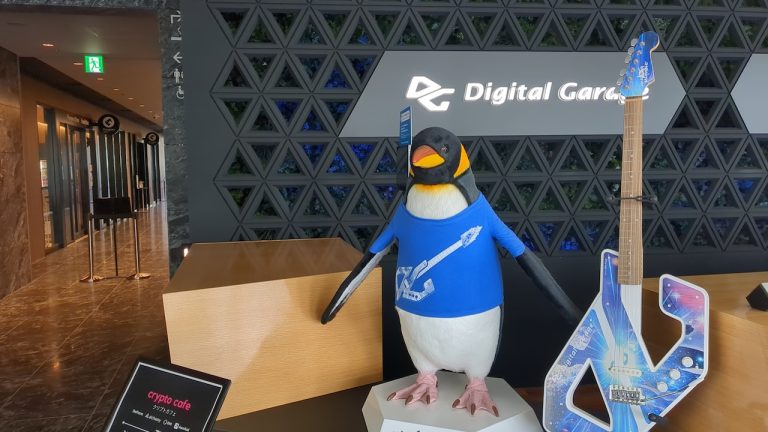Scroll introduced a loyalty program to allow users to earn Marks exclusive rewards for active participants, excluding US and Chinese users.
The post Ethereum layer 2 Scroll unveils loyalty program to reward early adopters and active users appeared first on Crypto Briefing.
Blockchain data from Etherscan suggest Scroll’s mainnet was live over a week ago.
Scroll, a new contender in the zero-knowledge Ethereum Virtual Machine (zkEVM) space that works to scale the blockchain, has confirmed the launch of its mainnet.
The team behind Scroll announced the launch in an Oct. 17 post and added that existing applications and developer tool kits on Ethereum can now migrate to the new scaling solution.
“Everything functions right out of the box,” the Scroll team said.
After more than two years of building, we are thrilled to announce the launch of Scroll Mainnet.
— Scroll (@Scroll_ZKP) October 17, 2023
As we open the doors to Mainnet, we want to take a moment to reflect on our journey thus far pic.twitter.com/WKfkjyIkB0
A zkEVM solution such as Scroll’s aims to provide lower transaction costs at a higher throughput for decentralized applications running on Ethereum.
It works by batching thousands of transactions off-chain into one, then submitting a proof consisting of a minimal data summary to Ethereum’s mainnet.
Blockchain data suggests Scroll had withheld the news that its mainnet was live since Oct. 8 — the date at which the first smart contract was deployed on thScroll mainnet, according to Etherscan data.
Scroll said the mainnet launch came after 15 months of extensive testing and security audits across three separate testnets.
“Our bridge and rollup contracts were audited by OpenZeppelin and Zellic,” Scroll added. Its zkEVM circuits were reviewed by Trail of Bits, Zellic, and KALOS.
Across its three testnets over 450,000 smart contracts were deployed enabling over 90 million transactions across 9 million blocks. 280,000 ZK-proofs were also generated the firm said.
— Scroll (@Scroll_ZKP) October 17, 2023
About a month ago, Scroll co-founder Ye Zhang told Cointelegraph Scroll would launch with centralized features but plans to increasingly decentralize over time.
“We will have a centralized sequencer and the central approver button,” Zhang said. He added a plan is in place to remove that button, however.
“We have a roadmap [...] To solve the single point of failure and to incentivize the community to build better proving hardware.”
Zhang said the Scroll team will also pitch several proposals to let the community discuss what’s best for Scroll moving forward.
Related: ConsenSys launches Linea zkEVM to further scale Ethereum
Scroll was founded in 2021 with the goal to be more community-driven. Other zkEVM solutions working to scale Ethereum include Polygon, zkSync, StarkWare and Immutable.
Jordi Baylina, technical lead of Polygon Hermez zkEVM, recently told Cointelegraph that such competition in the zkEVM space is only going to make the Ethereum ecosystem more robust:
“Having different projects adds a lot of experience, and it’s also a way to test different approaches, ways of handling things or solving things,” he said.

Scroll co-founder Ye Zhang is aiming for a community-driven decentralized immutable scaling solution for Ethereum.
After two years of development, a group of Ethereum idealists are close to launching their zero-knowledge EVM (Ethereum Virtual Machine) — Scroll — developed with Ethereum’s values in mind.
While there are already several zero-knowledge EVMs in existence today, Scroll co-founder Ye Zhang told Cointelegraph at Token2049 that the project was “idealistic” as the team was sticking to the philosophy and the principles that Ethereum already cultivates.
Zhang said that they have been working on this mostly as a “labor of love,” driven by a shared vision to scale Ethereum while staying true to its decentralization principles.
He added that the project was more human interest than simply solving computational problems, “we started in an open source way, in a community-driven way,” he said.
“We can grow this community very organically, and then grow our network effect, not in a very silly way, not in a very marketing-driven aggressive way.”
The new zkEVM is set to launch within weeks, having already undergone extensive testing and carried out audits on the code. Zhang said the Scroll will launch after some final testing and major projects like Uniswap and Aave are ready to deploy on Scroll at launch.

The mathematician believes zk-rollups are the “holy grail” or best-in-class layer-2 scaling solutions, which are also very cheap and secure.
However, Scroll is entering a crowded ecosystem that already has zkEVM solutions from Polygon, Immutable, StarkWare, and ConsenSys’ Linea which launched in August.
Zhang claimed that some of the other systems such as Linea have some “unproven” parts in the circuit but believes Scroll provides a “complete proof” of all Ethereum “opcodes” and components of the transaction.
“So it's not only compared to compatibility, but also a full proof for proving that everything we already have,” he said.
Related: Buterin weighs in on zk-EVMs’ impact on decentralization and security
Scroll is a layer-2 scaling project that has been in development for two years. It uses zero-knowledge proofs to compress data off-chain, meaning only proofs are submitted on-chain — enabling higher throughput.
As always, we published another ecosystem update, highlighting some of the latest projects to join the Scroll ecosystem
— Scroll (@Scroll_ZKP) September 16, 2023
This week, we cover DeFi aggregators and permissionless lending protocols. https://t.co/1G4ErzAB00
The EVM component enables full native compatibility with any existing Ethereum software and applications.
The initial setup will still involve some centralization such as sequencers, Zhang said, but the roadmap will decentralize this further over time.
 The ETHGlobal Tokyo hackathon drew to a close on Sunday, as builders from around the world competed for $375,000 in prizes. The event was kicked off with the first-ever ETHGlobal “Pragma” summit, sponsored by Verse, among others. Engineers and representatives from Bitcoin.com also took part in the summit and hackathon, and shared their thoughts on […]
The ETHGlobal Tokyo hackathon drew to a close on Sunday, as builders from around the world competed for $375,000 in prizes. The event was kicked off with the first-ever ETHGlobal “Pragma” summit, sponsored by Verse, among others. Engineers and representatives from Bitcoin.com also took part in the summit and hackathon, and shared their thoughts on […]
Vitalik Buterin has weighed the impacts of the addition of zk-EVMs at the protocol level, saying it could speed up the verification process on the base layer.
Ethereum co-founder Vitalik Buterin wants to see zero-knowledge Ethereum Virtual Machines (zk-EVMs) built on Ethereum’s first layer to speed up the verification process on the base blockchain.
Buterin explained in a March 31 post that it’s possible to integrate a zk-EVM on the base layer without compromising on decentralization and security. The technology enables Ethereum Virtual Machines to execute smart contracts on the blockchain with ZK proofs.
How will Ethereum's multi-client philosophy interact with ZK-EVMs?https://t.co/MPpTPNhldR
— vitalik.eth (@VitalikButerin) March 31, 2023
Ethereum was developed with a “multi-client philosophy” to ensure decentralization at the protocol level, Buterin explained. By integrating zk-EVMs at the Ethereum layer 1, it would be the third type of client.
“Once that happens, zk-EVMs de-facto become a third type of Ethereum client, just as important to the network's security as execution clients and consensus clients are today.”
The other two clients are the “consensus” and “execution” clients. The consensus client implements proof-of-stake to ensure nodes in the network reach agreement. While the execution listens to new transactions broadcasted in the network, executes them in standard EVM and holds a copy of the latest state of the blockchain.
In championing the idea of zk-EVM verification at the Ethereum base layer, Buterin firstly considered the advantages and drawbacks of treating the layer 1 as a “clearinghouse” by pushing almost all activity to layer 2’s.
He said many layer 1-based apps would become “economically nonviable” and that small funds — worth a few hundred dollars or less — may get “stuck” in the event that gas fees grow too large.
Buterin explained that zk-EVMs would need to be “open” in that different clients each have different zk-EVM implementations and each client waits for a proof that is compatible with its own implementation before accepting a block as valid.
He prefers this approach because it wouldn’t abandon the “multi-client” paradigm, and an open zk-EVM infrastructure would also ensure that new clients could be developed, which would further decentralize Ethereum at the base layer.
Related: ConsenSys zkEVM set for public testnet to deliver secure settlements on Ethereum
Buterin said zkEVMs may be the solution to “The Verge,” a part of the Ethereum roadmap which aims to make verification at the base layer easier.
Updated roadmap diagram! pic.twitter.com/MT9BKgYcJH
— vitalik.eth (@VitalikButerin) November 4, 2022
Buterin acknowledged that the zk-EVM infrastructure may cause data inefficiency and latency issues, however he said those challenges wouldn’t be “too hard” to overcome.
If the zk-EVM ecosystem is implemented, it would make running a full node on Ethereum even easier, Buterin explained:
“Ethereum blocks would be smaller than today, anyone could run a fully verifying node on their laptop or even their phone or inside a browser extension, and this would all happen while preserving the benefits of Ethereum's multi-client philosophy.”
Ethereum layer-2 scaling platform Polygon has made considerable progress with its zk-EVM, having recently open-sourced its zkEVM to the Polygon mainnet on March 27, promising reduced transaction costs and increased throughput of smart contract deployments.
StarkWare, ConsenSys, Scroll, zkSync and Immutable are also deploying similar zkEVM scaling solutions.

The Chinese internet giant is launching new Web 3.0 solutions including a Metaverse-in-a-Box product and blockchain API services.
According to a press release on Feb. 22, Tencent Cloud, the cloud computing branch of Chinese internet giant Tencent, announced that it had concluded multiple agreements with blockchain firms to support the active development of the Web 3.0 ecosystem. Firstly, Tencent Cloud signed a memorandum of cooperation with decentralized blockchain infrastructure provider Ankr to jointly develop a series of blockchain API services for remote procedure call nodes. The new service will be deployed on Tencent Cloud's infrastructure and will provide connections to mainstream blockchains building on Web 3.0 games and applications.
Secondly, Tencent Cloud said that it reached strategic cooperation agreements with three other blockchain partners, Avalanche, Scroll, and Sui, to accelerate the adoption of Web 3.0 applications. The cooperation between Tencent Cloud and Avalanche will provide developers with efficient and fast node settings. With the help of Tencent Cloud's infrastructure footprint, the cooperation between Tencent Cloud and Scroll will assist developers with building practical projects on Scroll and expand access to non-blockchain enterprises. Finally, the cooperation between Tencent Cloud and Sui will provide developers with cloud game development tools and professional support to improve the on-chain game experiences.
The company also introduced a new Tencent Cloud Metaverse-in-a-Box product for Web 3.0 developers that fully integrates a wide range of infrastructure, high-performance products, out-of-the-box software development kits, and low-code solutions for use in games and media entertainment. Commenting on the development, Poshu Yeung, a senior vice president at Tencent Cloud International, stated:
"With a transparent digital future ahead, Tencent cloud is prepared to, through its accumulated experience in the field of games, audio, and video, provide strong technical support for Web 3.0. Tencent Cloud will cooperate with industry partners to offer more immersive experiences and cultivate the cultivate Web 3.0 ecosystem."
